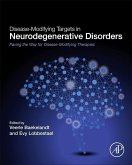Transmissible spongiform encephalopathies (TSE) or prion diseases are a group of fatal neurodegenerative diseases that affects humans and animals. The characteristic feature of prion diseases is conversion of normal cellular prion (PrPc) to the abnormal pathogenic scrapie isoform (PrPsc) through a still undefined mechanism, which eventually results in the extracellular accumulation of PrPsc aggregates. Studies were shown that cellular prion protein is present in cancer cell lines and may protect cells from pro-apoptotic agent or sensitizes cells to apoptotic stimulus. Therefore, the main objective of this study was to establish stable cell lines overexpressing prion protein in human breast cancer cell line, MCF-7 and human neuroblastoma cell line, SH-SY5Y cell lines by transfection of cDNA into MCF-7 and SH-SY5Y cell lines using the electroporation technique.
Bitte wählen Sie Ihr Anliegen aus.
Rechnungen
Retourenschein anfordern
Bestellstatus
Storno








